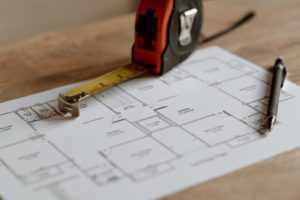Are you wondering if some of your home improvements could qualify for tax exemption? Well, let me burst your bubble; you can’t deduct tax on home improvements the same year that you make those improvements. But hear me out! You can keep track of your capital improvements, and it can help lower your taxes when you sell the house. Tax-deductible home improvements are those structural updates that add value and functionality to your property. Some of these updates also look to extend the life span of your property or adapt it for new use. Let’s dive into and learn some of the tax deductible home improvement projects.
Tax Deductible Home Improvement Projects: Repairs vs. Improvements
Knowing the line between home repairs and capital home improvements is crucial.
The thumb rule in such a scenario is that a repair is a home fixture to keep the house livable.
Home improvements—AKA capital improvements—are projects that alter the property’s structure to provide more value, extend its lifespan, and adapt it to new changes.
While home repairs can be easy and fast fixtures, capital improvements are pretty extensive, costly, and can take quite some time to complete.
Home repairs don’t qualify for tax credits.
What home improvements qualify for tax deduction?
Installing green energy-related equipment.
One of the tax-deductible home improvements is installing an environmental-friendly source of energy.
In this era, creating an alternative green source of energy is imperative. And that’s why the government is taking a step ahead to motivate homeowners to install green energy.
Installing sources of green energy like solar, geothermal heat pumps, wind turbines, or fuel cells can qualify for tax deductions.
Updating your house roof to solar roofing—a renewable energy source—can also qualify for tax credit save for the roof decking and rafters.

Installing energy-efficient windows, doors, and roofs.
Installing windows, doors, and roofing using materials with the Energy Star rating can also qualify for the tax credit.
Whether metal or asphalt roof, renovating your roof with materials that aim to reduce the heat on the roof surface—pigmented coatings and cooling granules— and are Energy Star rated can qualify for tax exemptions.
Additionally, remodeling your home to add insulations like weather stripping, caulk, house wrap, or spray foam can be eligible for energy efficiency tax credits.
Remodeling your home for medical-related reasons.
If you need some new functionalities to adapt your home to new functions, you can consider those as capital improvements.
Some medical-related home remodeling include creating more space on the doorways, installing lifts, ramps, railings, or lowering your cabinets.
Any medical upgrade to support you or your family members can qualify for tax exemption on capital gains.
Upgrading your home office
Do you work from or conduct business from home? And perhaps have a home office solely for work purposes?
Remodeling such a space could also qualify for tax deductions.
And it is crucial to note that home office improvements that qualify for tax deduction apply to self-employed people.
Home additions and finishes.
Adding a new room, swimming pool, or installing a new feature like a bathroom to boost the house’s resale value can also qualify as tax-deductible home improvements.
Create a list of all the home updates you make before reselling your home.
IRS can allow you to deduct the cost you incurred during remodeling from your capital gains tax.
Also, if you use HELOC to finance your home remodeling before selling, you could qualify to deduct the interest accrued on loan from your capital gains tax.
Importantly, it is crucial to get advice from your tax advisor so that you can capitalize on tax-deductible home improvements.
If you need a dumpster for home upgrades, Bin There Dump That Tampa is it!
